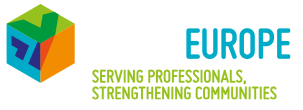I get up in the morning, turn on the computer and there are almost limitless things to do. Arrange appointments, write this essay, answer emails, envision a new project, research new methodologies, communicate with colleagues, etc., etc., etc. How do I choose what to start with?
 I face this dilemma in another area of my life as well. As an observant Jew there are lots of mitzvot (commandments) to fulfill, sometimes one conflicting with another. And there are guidelines as to which one to prioritize. I realize that, unwittingly, I have taken some of the ideas from the world of mitzvot and applied them to my work life. Here are some of my insights as they apply to starting off the day.
I face this dilemma in another area of my life as well. As an observant Jew there are lots of mitzvot (commandments) to fulfill, sometimes one conflicting with another. And there are guidelines as to which one to prioritize. I realize that, unwittingly, I have taken some of the ideas from the world of mitzvot and applied them to my work life. Here are some of my insights as they apply to starting off the day.
Power of the mundane
There is a tendency to value the new, the novel, and the unusual. And it’s easy to put energy into the latest project. When it comes to commandments there is a startling concept –תדיר ושאינו תדיר, תדיר קודם – tadir ve’she’eyno tadir, tadir kodem – we value the frequent over the infrequent (Brachot 27a). For example, when we say kiddush on Friday night we say the blessing of the wine, which is said whenever wine is drunk, before the blessing on the Shabbat which is only said once a week. This is telling us that there is value to what is regular, what is commonplace, the scaffolding that sets the basis for the rest of one’s life.
Many people suggest doing the most urgent or important work at the beginning of the day. I often find it helpful to deal with technical details first. Once I have set up the mundane basis for the rest of my day, I am calm and free to concentrate on the urgent, important, and interesting.
Put your oxygen mask on first before you help others
Imagine this situation. A spring belongs to the residents of a city, and they need it for drinking water but so do the people of another town. What do they do? The Talmud tells us that their own lives take precedence over the lives of others (Nedarim 80b). This may seem counterintuitive when we are so often told to help others. But it is rather like the flight attendant who tells one to put on one’s own mask in an emergency before helping others. Only if I have enough to drink can I find a way to help others with their thirst.
I am my own top priority. Unless I take care of myself and am fit, happy, and healthy, I cannot do a good job. So, I may start my day with a few minutes of writing or meditation or exercise to settle myself.
What can only YOU do?
Learning Torah is an important mitzva and usually when one is involved in doing a commandment, one is exempt from doing another commandment (Brachot 11a). However, if learning Torah comes into conflict with a mitzvah that only you can do, the new mitzvah takes precedence (Moed Katan 9b).
In the same way, when I start the day with a range of tasks like those I mentioned earlier, I ask myself “Which of these has to be done by me? Which require my knowledge, personality, insight? And which tasks can be delegated to others?” I then decide what only I can do and focus on that, delegating other tasks to other people.
A Bit Deeper
All three of these examples focus on the individual. I take care of myself to make sure I do a good job. I ask what only I can do. And I deal with the practical and the everyday to give myself headspace. This contrasts with many methodologies that focus on the tasks rather than the person doing the tasks.
This insight reminds us that we are not replaceable cogs in a wheel but unique individuals with talent, skills, and personalities, created in God’s image (Genesis 1:27). Ultimately, respecting, one’s own strengths and individuality is the best tool to use to decide what to do when and how to start one’s day.
Bibliography
Which Mitzvot Take Precedence? By Halichipedia
